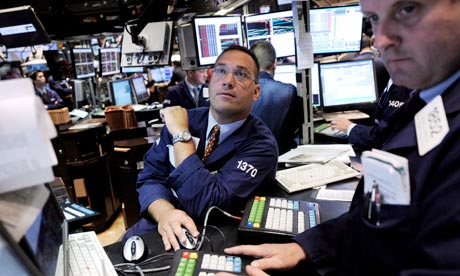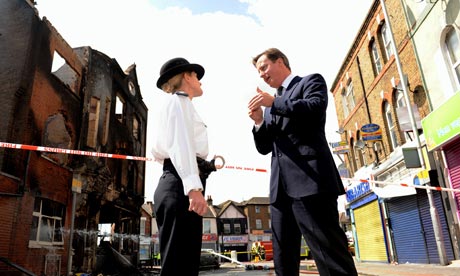Followers, in thrall to Harrods and Downton Abbey, repeat the mantra that the greed of a few means prosperity for all

'We are invited to deceive ourselves into believing we are playing for the same stakes while worshipping the same ideals, a process labelled 'aspiration'.' Photograph: Alamy
Last week, Tory MP Esther McVey, Iain Duncan Smith's deputy, insisted it was "right" that half a million Britons be dependent on food banks in "tough times". Around the same time, the motor racing heiress Tamara Ecclestone totted up a champagne bill of £30,000 in one evening. A rich teenager in Texas has just got away with probation for drunkenly running over and killing four people because his lawyers argued successfully that he suffered from "affluenza", which rendered him unable to handle a car responsibly. What we've been realising for some time now is that, for all the team sport rhetoric, only two sides are really at play in Britain and beyond: Team Super-Rich and Team Everyone Else.
The rich are not merely different: they've become a cult which drafts us as members. We are invited to deceive ourselves into believing we are playing for the same stakes while worshipping the same ideals, a process labelled "aspiration". Reaching its zenith at this time of year, our participation in cult rituals – buy, consume, accumulate beyond need – helps mute our criticism and diffuse anger at systemic exploitation. That's why we buy into the notion that a £20 Zara necklace worn by the Duchess of Cambridge on a designer gown costing thousands of pounds is evidence that she is like us. We hear that the monarch begrudges police officers who guard her family and her palaces a handful of cashew nuts and interpret it as eccentricity rather than an apt metaphor for the Dickensian meanness of spirit that underlies the selective concentration of wealth. The adulation of royalty is not a harmless anachronism; it is calculated totem worship that only entrenches the bizarre notion that some people are rich simply because they are more deserving but somehow they are still just like us.
Cults rely on spectacles of opulence intended to stoke an obsessive veneration for riches. The Rich Kids of Instagram who showed us what the "unapologetically uber-rich" can do because they have "more money than you" will find further fame in a novel and a reality show. Beyond the sumptuous lifestyle spreads in glossies or the gift-strewn shop windows at Harrods and Selfridges, and Gwyneth Paltrow's Goop website, shows like Downton Abbey keep us in thrall to the idea of moolah, mansions and autocratic power. They help us forget that wealthy British landowners, including the Queen, get millions of pounds in farming subsidies while the rest of us take back to the modest homes, which we probably don't own, lower salaries and slashed pensions. Transfixed by courtroom dramas involving people who can spend a small family's living income on flower arrangements, we don't ask why inherited wealth is rewarded by more revenue but tough manual labour or care work by low wages.
Cue the predictable charge of "class envy" or what Boris Johnson dismisses as "bashing or moaning or preaching or bitching". Issued by its high priests, this brand of condemnation is integral to the cult of the rich. We must repeat the mantra that the greed of a few means prosperity for all. Those who stick to writ and offer humble thanks to the acquisitive are contradictorily assured by mansion-dwellers that money does not buy happiness and that electric blankets can replace central heating. Enter "austerity chic" wherein celebrity footballers are hailed for the odd Poundland foray, millionaire property pundits teach us how to "make do" with handmade home projects and celebrity chefs demonstrate how to "save" on ingredients – after we've purchased their money-spinning books, of course.
Cultish thinking means that the stupendously rich who throw small slivers of their fortunes at charity, or merely grace lavish fundraisers – like Prince William's Winter Whites gala for the homeless at his taxpayer-funded Kensington Palace home – with their presence, become instant saints. The poor and the less well-off, subject to austerity and exploitation, their "excesses" constantly policed and criminalised, are turned into objects of patronage, grateful canvasses against which the generosity of wealth can be stirringly displayed. The cult of the rich propounds the idea that vast economic inequalities are both natural and just: the winner who takes most is, like any cult hero, just more intelligent and deserving, even when inherited affluence gives them a head start.
We are mildly baffled rather than galvanised into righteous indignation when told that the rich are being persecuted – bullied for taxes and lynched for bonuses. The demonising of the poor is the flip side of the cult of the rich or, as a friend puts it, together they comprise the yin and yang of maintaining a dismal status quo. It is time to change it through reality checks, not reality shows.




